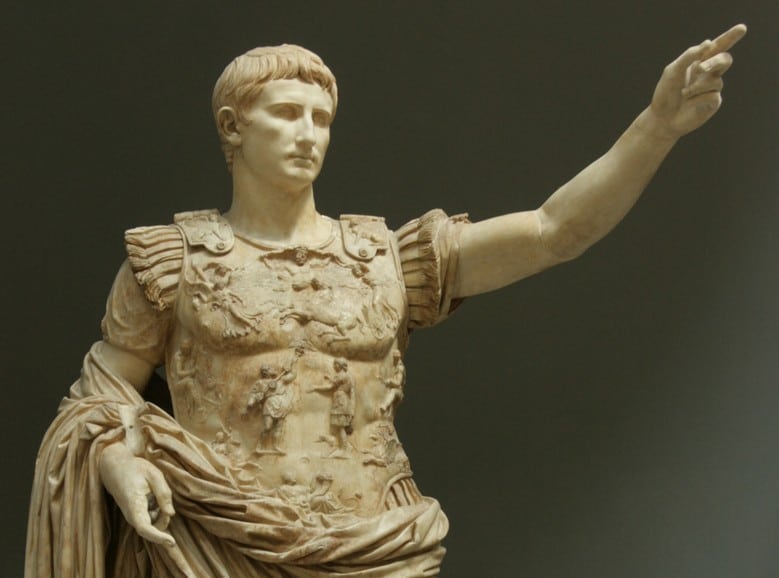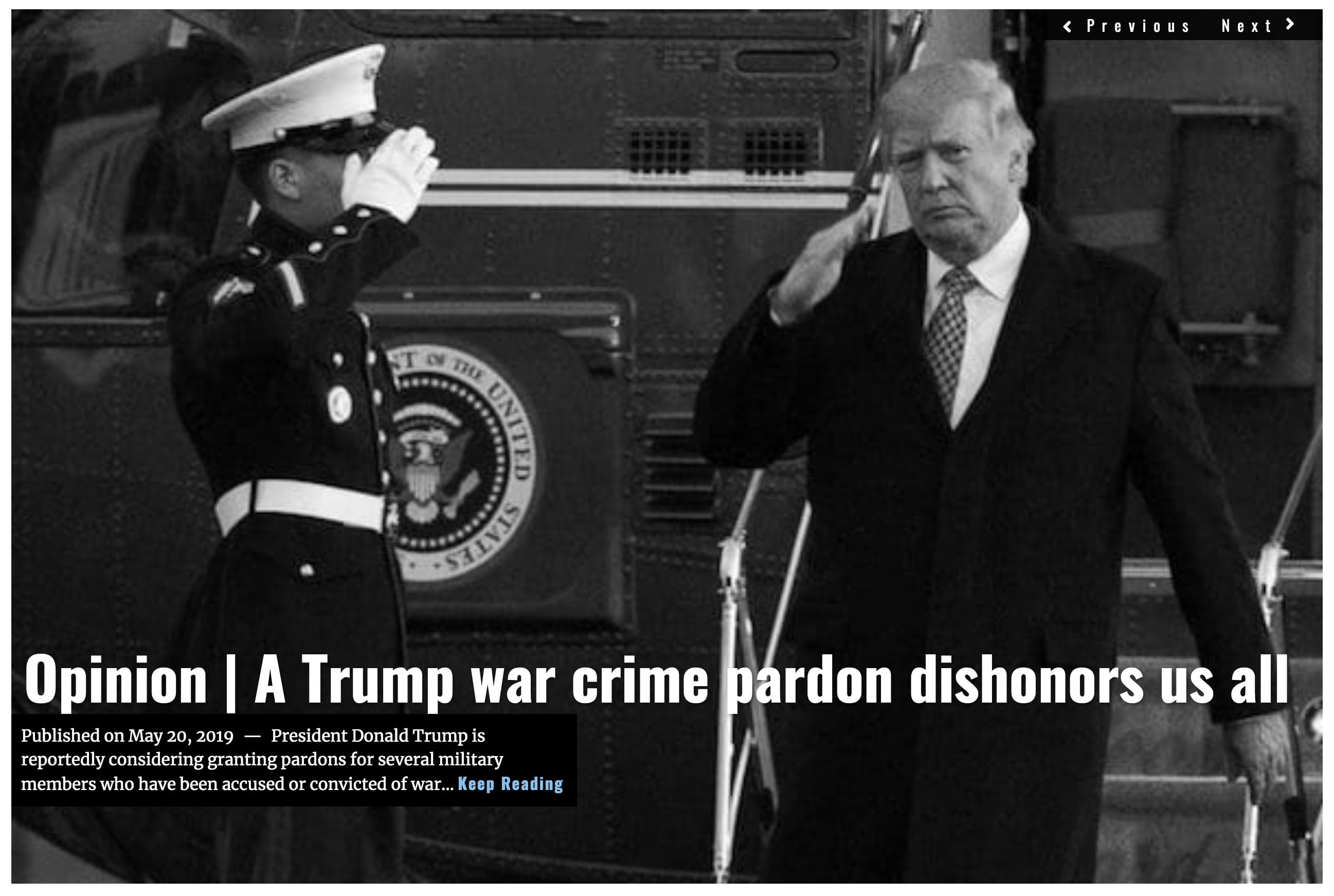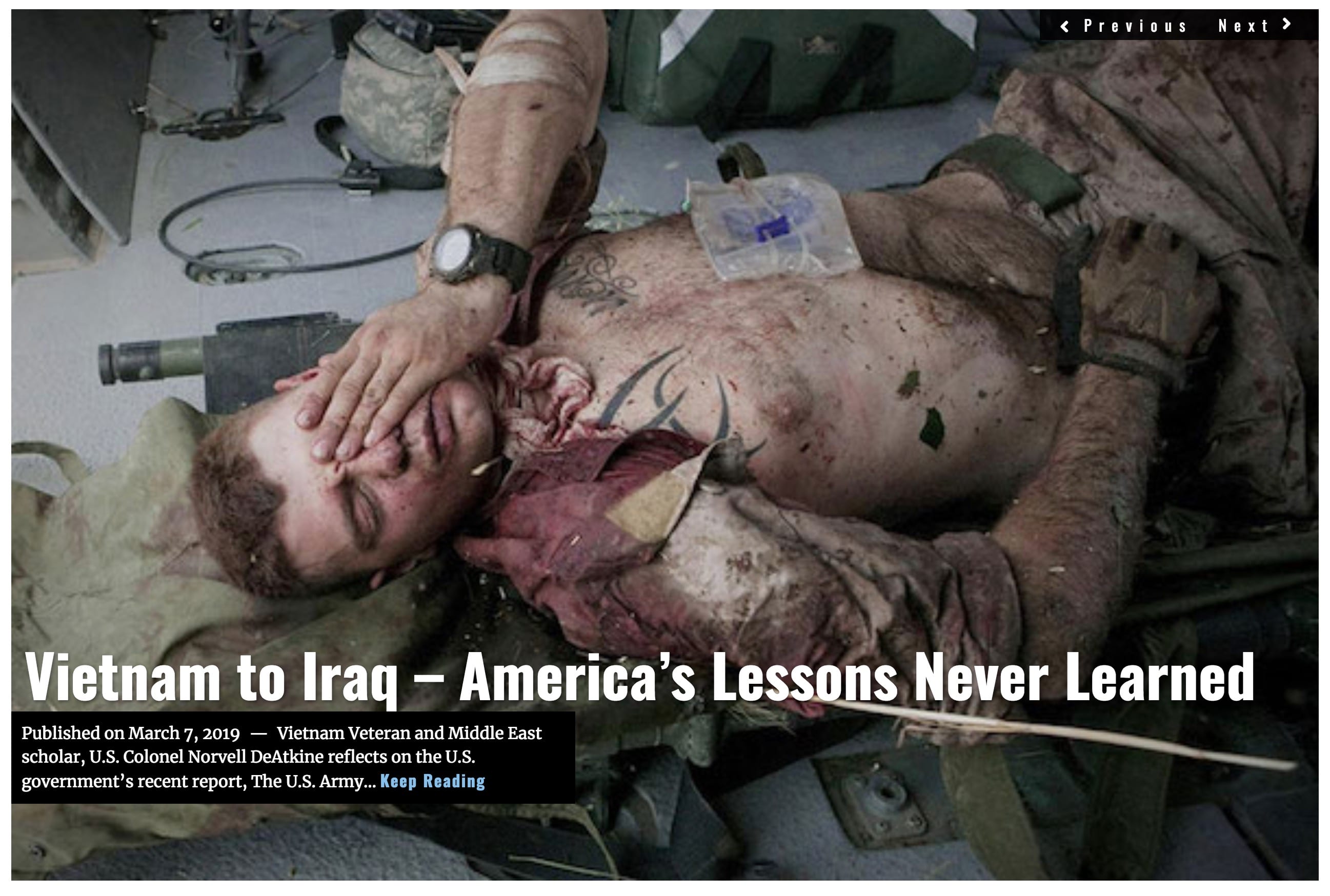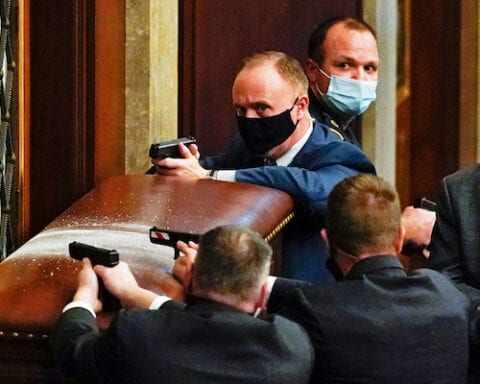To the classical mind, a society in which political authority is divorced from military service was practically beyond the imagination. Worth remembering, as we greet another Memorial Day with 1,281,900 U.S. military personnel the world over, and the looming threat of waning democracies worldwide. [This article was originally published May 26, 2018]
Over two millennia ago, Greek culture reigned supreme over the Mediterranean and Homer’s writings provided a clear model for leadership – the warrior. Achilles, Odysseus, Hector – all were warrior princes whose greatness was proportional to their martial prowess.
This meant that if a man wanted to lead, he had to fight. All Hellenic literature and institutions bore out this moral imperative. Enter the role of the newsfeed, then not Lima Charlie but Homer.
The virtue of Sparta’s King Leonidas while sacrificing himself against the Persians has been famously contrasted with the Persian King Xerxes’s observation of the battle from the safety of a golden throne.
The Spartan kings, the Athenian Strategos, and the Roman Consul — all three offices were the highest in the land, and all had to fight, and often die, shield to shield with their fellow citizens. In the Classical Mediterranean, defending one’s city-state was inseparable from political power.
![Image Pericles’ funeral oration [Wikimedia]](https://limacharlienews.com/wp-content/uploads/2018/05/Greek-democracy.jpg)
However, as the classical era came to a close, military service lost its cachet.
Horace, Virgil, and Ovid were the three most read writers during the reign of Rome’s first emperor, Augustus Caesar. Each had his own rationale for disparaging military service. Quintus Horatius Flaccus (Horace) was once a wealthy landowner, but lost his land to rampaging soldiers during Rome’s civil wars, and wrote at length on the pain of this loss.
“Whither, whither, impious men are you rushing? Or why are the swords drawn, that were [so lately] sheathed? Is there too little of Roman blood spilled upon land and sea?” wrote Horace.
Publius Vergilius Maro (Virgil), a propagandist for the new authoritarian regime that had supplanted the Republic, extolled a vision of a golden age free of war: “Wars at an end, harsh centuries then will soften . . . And grim with iron frames, the Gates of War will then be shut.”

Ovid was a playboy who tested the limits of free speech by advocating the replacement of the glory of war with glorious sexual conquest. “A general looks for spirit in his brave soldiery; a pretty girl wants spirit in her companions . . . If you want a life of action, fall in love,” wrote Publius Ovidius Naso (Ovid). Ovid’s tempting vision was too much for Augustus, who exiled the poet.
This rising distaste for military service was the product of a century of civil strife, itself set off by having to exhort citizens to participate in the military, ironically enough. For instance, Gaius Marius removed the requirement that soldiers own land, and the Gracchus brothers’ attempts to redistribute land in order to create more soldier-farmers for the military.
By the time of Augustus’ rule anti-military sentiment had grown so strong that Roman fathers were cutting off their son’s thumbs to make them ineligible to serve, a practice that Augustus punished by selling the father into slavery.
Romans’ distaste for military service persisted, and the link between military service and political power eroded. The notion of an emperor grew out of the military title Imperator, which was conferred on generals for exceptional victories, and originally emperors were expected to at least pretend to lead their people into battle. However, as Augustus’ Principate gave way to Diocletian’s Dominate, emperors were more likely to ride a throne than a horse.
Freedom is the sure possession of those alone who have the courage to defend it.
– Pericles.
A society in which military service had been nearly universal for able-bodied men, especially in the upper classes, faced endemic manpower shortages. In spite of increasingly draconian measures, such as burning draft dodgers at the stake, Rome was forced to subcontract soldiers from Germanic barbarians.
The link between military service and political power was reborn when Rome was conquered by warrior kings. During the Middle Ages, with kings, kingdoms, and accompanying knights, notions of chivalry, glory, and honor took hold, driving generation after generation of the European nobility into the military, right up to the 20th century in Europe and the U.S.
However, we don’t live in that world anymore.
The ruling classes’ predilection for sending their children into the military ceased during the First World War, where the would-be glorious scions got caught up in barbed wire and shredded by machine guns.
“On both sides, officers were far more likely to be killed than the men whom they led over the parapets of trenches and into machine-gun fire, and they themselves were often from society’s highest reaches,” wrote Adam Hochschild. “Roughly 12 percent of all British soldiers who took part in the war were killed, for instance, but for peers [members of the British House of Lords] or sons of peers in uniform the figure was 19 percent. Of all men who graduated from Oxford in 1913, 31 percent were killed.”
![Image George H.W. Bush deferred his admission to Yale and accepted a commission as an ensign in the U.S. Navy becoming a naval aviator at only 19 years old — the youngest ever at the time. [Photo: U.S. Navy / Mass Communication Specialist 1st Class Narina Reynoso]](https://limacharlienews.com/wp-content/uploads/2018/05/George-HW-Bush.jpg)
In 2013, a Stars and Stripes report attributed an overall 25% decline in veteran representation in Congress to the fact that less than 1 percent of the population had served in the Iraq and Afghanistan wars. This was opposed to the large number of service members who had served in World War II and the Korean War, that in turn created a surge in Congress from the 1960s to mid-1970s. At that time, veterans consisted of about three-fourths of the U.S. House.
Despite the recent surge of OIF and OEF veterans serving in the U.S. Congress, the overall number of veterans in Congress has remained in a four-decade long slide with the Senate in 2017 having just 21 veterans, down from a peak of 81 in 1977 (the lowest since at least World War II), and the House having just 79 veterans, down from a peak of 347 in 1977.
Compounding this trend, with the legacy of democracy and those that have fought so valiantly for it in mind, it appears that in our time democracy is dwindling. Despite the constant watering of the tree of liberty with the blood of the American fighter, democracy is on the retreat throughout the world. From East to West, the notion of free democratic elections appears to be faltering, often times only being used as nothing but a disparaging tool of Cimmerian powers.
](https://limacharlienews.com/wp-content/uploads/2018/05/Women-in-military-and-politics.jpg)
We may soon find ourselves in short supply of hope, the very essence of democracy.
Yet, our modern day democracy may not yet have seen its darkest hour, and it is important that we remember that it is in the darkest hour a light shines the brightest. That light may be found within the very essence of the American fighting man and woman, so long as they never stop fighting for democracy.
Memorial day is, ultimately, a time for us to not just remember the fallen, but to remember what they so lionheartedly fought for. With men and women like that, the spirit of democracy will never go quietly into the night.
As we observe Memorial Day, we shouldn’t forget that just because classical notions of duty may be ever dwindling, certain truths stand the test of time.
“What you leave behind is not what is engraved in stone monuments, but what is woven into the lives of others.“ – Pericles
LIMA CHARLIE NEWS, Editors
[Diego Lynch, John Sjoholm and Anthony A. LoPresti contributed to this article]
[Subscribe to our newsletter for free and be the first to get Lima Charlie World updates delivered right to your inbox.]
Lima Charlie World provides global news, featuring insight & analysis by military veterans, intelligence professionals and foreign policy experts Worldwide.
For up-to-date news, please follow us on twitter at @LimaCharlieNews
In case you missed it:
The Long War’s Reaper: A Hard Look at America’s Military Culture

![Image Memorial Day may soon be a remembrance of democracy and those who had the courage to defend it [Lima Charlie News]](https://limacharlienews.com/wp-content/uploads/2018/05/Memorial-Day-may-soon-be-a-remembrance-of-democracy-and-those-who-had-the-courage-to-defend-it-Lima-Charlie-News.png)


![A Trump war crime pardon dishonors us all [Lima Charlie News]](https://limacharlienews.com/wp-content/uploads/2019/05/A-Trump-war-crime-pardon-dishonors-us-all-Lima-Charlie-News-480x384.png)
](https://limacharlienews.com/wp-content/uploads/2019/03/Remembering-Becket-A-mothers-search-for-answers-480x384.png)




![The Mind of Bolton - AUMF and the New Iran War [Lima Charlie News]](https://limacharlienews.com/wp-content/uploads/2019/05/Inside-the-mind-of-Bolton-Lima-Charlie-News-main-01-480x384.png)
![A Trump war crime pardon dishonors us all [Lima Charlie News]](https://limacharlienews.com/wp-content/uploads/2019/05/A-Trump-war-crime-pardon-dishonors-us-all-Lima-Charlie-News-150x100.png)
](https://limacharlienews.com/wp-content/uploads/2019/03/Remembering-Becket-A-mothers-search-for-answers-150x100.png)